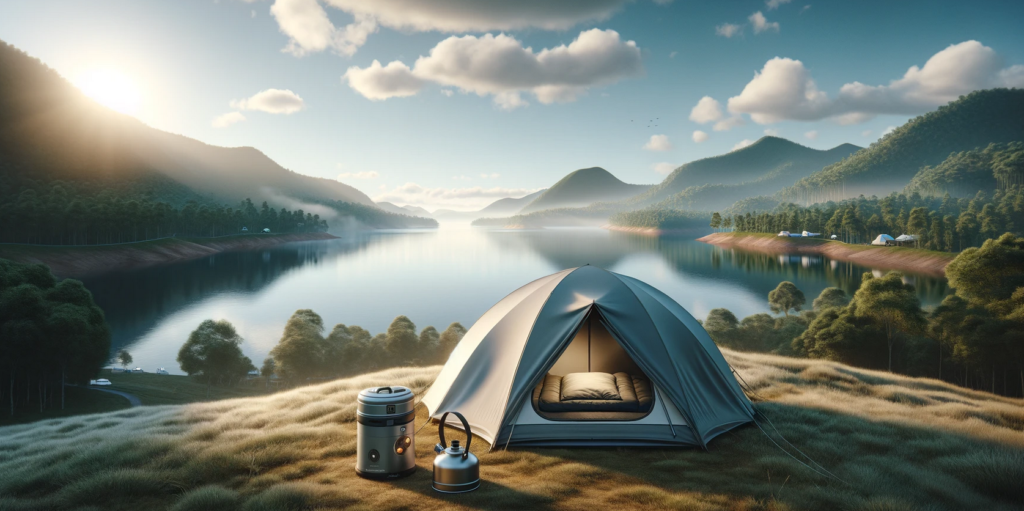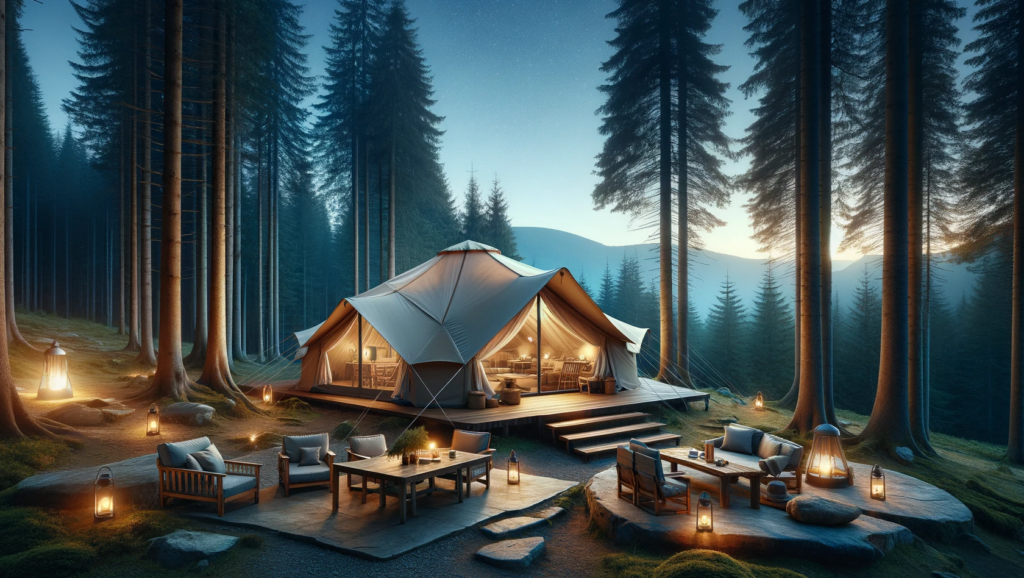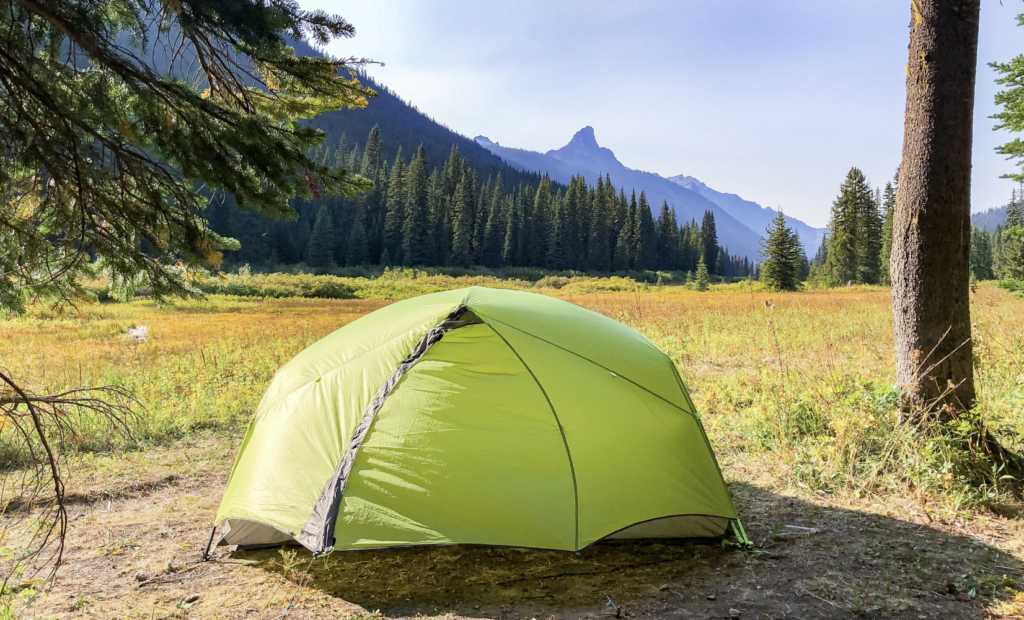Are you a camping enthusiast looking to enhance your outdoor experience?
We will explore the importance of having a tent for camping and the different types of tents available.
From providing protection from weather elements to adding comfort and privacy, a tent is a crucial element for any camping trip.
We will also discuss how to choose the right tent based on your camping needs, considering factors such as size, weatherproof features, weight, and budget.
So, grab your camping gear, and let’s dive into the world of tents!
Key Takeaways:
- A tent is essential for camping as it provides protection from weather elements, shelter and privacy, and keeps bugs and insects away.
- Different types of tents, such as dome, cabin, backpacking, pop-up, and rooftop tents, offer various features and are suitable for different camping needs.
- When choosing a tent, consider size, weatherproof features, weight and portability, setup and take down process, and budget to ensure the best camping experience.
What Is Camping?
Camping is an outdoor activity that involves staying overnight in natural surroundings, immersing oneself in the beauty of nature, beneath the twinkling stars, with essential gear and equipment to ensure a comfortable experience.
Connecting with nature during camping offers a retreat from the hustle and bustle of daily life, allowing individuals to recharge and rejuvenate amidst serene landscapes and fresh air. The use of tents provides shelter and a sense of security, blending human presence with the untamed wilderness.
Camping gear and equipment such as sleeping bags, cooking utensils, and lanterns enhance the overall experience, enabling campers to navigate the outdoor terrain and enjoy basic comforts under the open sky.
The magical experience of sleeping under the stars is unmatched, as the night sky becomes a canvas of twinkling lights, inviting contemplation and awe.
What Are The Different Types Of Camping?
Various types of camping cater to diverse preferences and needs, offering unique benefits and drawbacks. These include traditional tent camping, bivy sack camping, and even camping without a tent, each providing a distinct experience in the great outdoors.
Traditional tent camping offers the comfort of being enclosed and protected from the elements, providing a sense of security.
On the other hand, bivy sack camping offers incredible compactness and mobility, ideal for minimalist adventurers looking to move quickly and efficiently.
Camping without a tent allows for a true connection with nature, sleeping under the stars, and feeling immersed in the natural environment.
Why Do You Need A Tent For Camping?
A tent is an essential component of camping as it provides crucial protection from weather elements, offers shelter and privacy, keeps bugs and insects at bay, enhances comfort during outdoor stays, and enables camping in various locations, ensuring a safe and enjoyable experience in the wilderness.
When setting up camp, the tent becomes your home away from home, offering a cozy retreat amidst the rugged outdoors. The shelter provided by the tent not only shields you from rain, wind, and sun but also creates a sense of security and intimacy in the vast wilderness. Inside the tent, you have a private sanctuary, away from prying eyes and distractions, allowing you to unwind and recharge after a day of adventures.
Protection From Weather Elements
Tents serve as a vital shield against adverse weather conditions during camping trips, safeguarding campers from rain, wind, and other natural elements that could otherwise compromise their safety and comfort.
The versatility of tents lies in their ability to create a temporary sanctuary amidst nature’s unpredictability. Whether it’s a sudden downpour or gusts of wind, a durable tent provides a reliable barrier, keeping campers dry and warm. Protection is not just about physical safety but also psychological reassurance, allowing outdoor enthusiasts to immerse themselves in the beauty of the wilderness without worrying about the harsh elements. With innovative materials and designs, modern tents have elevated the camping experience, offering advanced features that enhance comfort while facing the challenges of diverse weather conditions.
Provides Shelter And Privacy
Tents offer a sense of shelter and privacy amid nature, creating a personal sanctuary for campers to relax, unwind, and retreat from the outside world while fostering a cozy and secure environment.
Within the camping site,
- Tents serve as portable havens, allowing individuals to establish their own secluded space amidst the wilderness.
- Privacy becomes a precious commodity as campers zip up their tent flaps, shutting out the curious eyes of nature and fellow adventurers.
It’s in these fabric walls that one finds solace, away from the hustle and bustle of the surroundings, offering a rare moment of tranquility amidst the chirping of birds and rustling of leaves. The shelter provided not only shields from the elements but also creates a cocoon of relaxation where campers can recharge their spirits and create lasting memories. Each tent becomes a mini-retreat, a place to unwind and savor the beauty of a peaceful night under the stars.
Keeps Bugs And Insects Away
Tents act as a barrier against unwanted bugs and insects, creating a protective enclosure that minimizes the intrusion of pests and critters, ensuring a more comfortable and bug-free camping experience for outdoor enthusiasts.
By providing a physical shield, tents play a crucial role in safeguarding campers from pesky creatures that can disrupt a peaceful night under the stars. The secure fabric walls and sealed seams of a tent limit the access points for insects, deterring them from infiltrating the sleeping quarters. This bug control aspect not only enhances camper comfort but also promotes a sense of safety and security, allowing outdoor enthusiasts to immerse themselves in nature without constant insect disturbances.
Adds Comfort To Your Camping Experience
Tents contribute significantly to the overall comfort of camping adventures by offering a cozy and secure sleeping area, shielding campers from external elements, and creating a homely environment amidst the wilderness, enhancing the quality of the outdoor experience.
One key feature that tents provide is insulation, helping to maintain a comfortable temperature inside, even when the weather outside is less than desirable. This insulation not only keeps campers warm during chilly nights but also offers a cool respite from the heat during hot summer days. Tents serve as a barrier against insects, keeping the sleeping area bug-free, and allowing campers to enjoy a peaceful night’s rest without any disturbances.
Allows You To Camp In Different Locations
Tents offer the flexibility to camp in diverse locations, from mountainsides to lush forests, allowing outdoor enthusiasts to explore and experience various landscapes while ensuring a safe and comfortable stay under the stars.
Whether pitching a tent along the rocky terrains of the mountains or deep within the serene forests, campers can immerse themselves in the beauty of nature.
The adaptability of tents makes it possible to set camp near sparkling lakes or in open meadows, offering a different experience each time.
From the rugged desert landscapes with its vast expanse to the soothing sounds of the ocean waves, these portable shelters cater to a range of environments, making camping an exciting escapade for all adventurers.
What Are The Different Types Of Tents?
The world of camping offers a diverse range of tent options to suit various preferences and needs, including dome tents, cabin tents, backpacking tents, pop-up tents, and rooftop tents, each designed with unique features to enhance the camping experience.
In terms of dome tents, they are known for their ability to withstand rough weather conditions with their sturdy structures, making them ideal for all-season camping adventures.
Cabin tents, on the other hand, offer spacious interiors and vertical walls, providing ample room for standing and moving around comfortably.
Backpacking tents are lightweight and compact, designed for hikers and backpackers who need a portable shelter for their outdoor excursions, offering easy setup and minimal pack weight.
Pop-up tents are perfect for quick and hassle-free camping trips, as they can be set up in seconds, saving time and effort.
Rooftop tents are gaining popularity among camping enthusiasts for their convenience and elevated sleeping platforms, allowing campers to enjoy panoramic views and added security from wildlife.
Each tent type serves its unique purpose, catering to different camping styles and preferences.
Dome Tents

Dome tents are popular camping shelters known for their sturdy construction, spacious interiors, and ease of setup, making them ideal for a wide range of outdoor adventures in different environments.
One of the key features of dome tents is their durability, as their rounded shape and structurally sound design are built to withstand varying weather conditions, from harsh winds to heavy rain. The spacious design of dome tents provides ample room for campers to move around comfortably and store their gear conveniently. Setting up a dome tent is usually a hassle-free process, with many models featuring simple mechanisms like color-coded poles and intuitive designs that make pitching the tent a breeze.
Cabin Tents

Cabin tents are characterized by their roomy interiors, vertical walls, and tall ceilings, offering ample space for campers to move around comfortably and store their gear efficiently, providing a home-like ambiance in the wilderness.
One of the key advantages of cabin tents, which many campers appreciate, is the spacious layout that allows for multiple people to sleep, relax, and socialize without feeling cramped. The vertical design of these tents not only maximizes headroom but also creates separate living areas, making them ideal for families or groups. Cabin tents often come equipped with various storage solutions ranging from built-in pockets to hanging organizers, ensuring that all camping essentials remain neatly organized and easily accessible.
Backpacking Tents

Backpacking tents are lightweight, compact shelters designed for easy transport during hiking and trekking excursions, offering a balance between portability and functionality for outdoor enthusiasts on the move.
These tents are crafted using specialized materials that are durable yet lightweight, ensuring they can withstand various weather conditions while not weighing you down during long treks.
Backpacking tents are ingeniously designed to maximize interior space while minimizing weight, often featuring streamlined shapes and practical layouts to optimize the living area within a small footprint.
Their quick and straightforward setup makes them ideal for solo travelers or small groups looking to pitch camp swiftly and efficiently at their chosen outdoor destinations.
Pop-up Tents
Pop-up tents are instant shelters that can be assembled swiftly without complex setup procedures, providing convenient and hassle-free accommodation for campers seeking quick and easy tent-pitching options during outdoor stays.
These innovative tents are designed with a user-friendly approach, allowing even novice campers to effortlessly set up their shelter in a matter of minutes. The simplicity of their assembly process makes them ideal for solo campers or groups looking for efficient tent setup solutions. The compact and lightweight nature of pop-up tents also enhances their portability, making them easy to carry and transport to different camping spots without any added bulk or weight.
Rooftop Tents
Rooftop tents are elevated shelters that can be mounted on vehicles, offering a unique camping experience with elevated views, enhanced safety from wildlife, and the convenience of setting up camp on higher ground, ensuring a memorable outdoor adventure.
One of the standout features of rooftop tents is their elevated positioning, which not only provides campers with breathtaking panoramic views of the surrounding landscapes but also keeps them safe from curious wildlife that might roam at ground level. This elevated vantage point adds a layer of security and peace of mind, especially when camping in remote or wild areas.
Setting up a rooftop tent on a vehicle is hassle-free and quick compared to traditional tents. With simple mechanisms and often no need for additional tools, campers can have their shelter ready in no time, leaving more time to enjoy the great outdoors.
How To Choose The Right Tent For Your Camping Needs?
Selecting the perfect tent for your camping requirements involves considerations such as size, capacity, weatherproofing, weight, portability, setup ease, and budget constraints to ensure a comfortable and tailored outdoor shelter that meets your specific needs.
When determining the size of the tent, consider the number of people it needs to accommodate and whether extra space is required for gear storage. Opting for a weatherproof tent with sturdy materials and waterproof coatings can ensure that you stay dry during unexpected downpours or windy conditions.
Weight plays a crucial role, especially if you will be carrying the tent over long distances. Look for lightweight materials like aluminum tent poles and nylon fabrics that are durable yet lightweight.
The setup process should be straightforward and quick, with color-coded poles and clear instructions to make pitching the tent hassle-free. Aligning the tent’s features with your budget can help you find a balance between quality and cost, ensuring you get the best value for your money.
Consider The Size And Capacity
When selecting a tent, it is essential to consider the size and capacity based on the number of people camping to ensure adequate space and comfort for all occupants during the outdoor stay.
Having a tent that accommodates the right number of campers is crucial for a successful camping experience. Size plays a vital role in providing enough room for sleeping, gear storage, and moving around comfortably. It’s not just about fitting bodies inside; it’s about creating a cozy environment where everyone can unwind after a day of outdoor adventures.
The capacity of a tent dictates how many individuals it can accommodate without feeling cramped. Exceeding the recommended capacity can lead to a crowded and uncomfortable sleeping arrangement, while undershooting it may leave campers feeling isolated.
Look For Weatherproof Features
Opt for tents with weatherproof features such as waterproof materials, sealed seams, and sturdy construction to withstand various weather conditions and ensure a dry and comfortable camping experience in changing outdoor environments.
When you’re out in the wilderness, unpredictable weather can quickly turn a fun camping trip into a soggy ordeal. That’s where the importance of weatherproof features in tents comes into play. Waterproof materials like high-quality polyesters or tightly woven nylons help to keep the rain out, ensuring you stay snug and dry inside your tent. Sealed seams prevent water from seeping in through the stitching, further enhancing the tent’s ability to repel moisture.
The sturdy construction of a weatherproof tent ensures it can withstand strong winds, heavy rain, or even occasional snow. This durability not only provides peace of mind but also extends the lifespan of your tent, making it a long-term investment for your outdoor adventures.
Consider The Weight And Portability
Prioritize lightweight and portable tents for camping trips, as they offer ease of transport and setup, allowing outdoor enthusiasts to move freely and conveniently while exploring different camping locations with minimal burden.
When selecting a tent for your camping adventure, considering the weight becomes crucial. Lightweight tents are ideal for hikers and backpackers as they can be easily carried along the trails without adding significant weight to your gear. Their compact size and portability make them a practical choice for campers who enjoy exploring remote and rugged terrains.
The lightweight design of these tents does not compromise on durability and weather resistance. Modern materials and construction techniques ensure that these tents can withstand various outdoor conditions while offering the convenience of quick assembly and disassembly.
Check The Setup And Take Down Process
Evaluate the setup and takedown process of tents to ensure they are user-friendly and efficient, allowing campers to pitch and dismantle the tent swiftly, enhancing the camping experience by reducing setup time and hassle.
Efficient tent setup and takedown processes are crucial factors that can make or break a camping trip. Proper design and functionality can significantly impact how quickly and effortlessly campers can have their shelters up and running. User-friendly features such as color-coded poles, intuitive instructions, and quick-release mechanisms streamline the assembly process, saving time and frustration.
Conversely, a poorly designed tent can lead to confusion, delays, and unnecessary stress, detracting from the overall enjoyment of the camping trip. Manufacturers who prioritize ease of setup in their tent designs not only enhance the user experience but also promote a positive association with their brand.
Think About Your Budget
Consider your budget when choosing a tent for camping, balancing quality, features, and affordability to find a tent that meets your outdoor needs without exceeding your financial constraints, ensuring a cost-effective and satisfying camping investment.
In terms of tent selection, it’s crucial to strike a balance between what you can afford and the quality you desire. Opting for budget-friendly options doesn’t necessarily mean compromising on durability or functionality. Look for sales or discounts on reputable brands to get the best value for your money.
Consider the long-term investment aspect of your tent purchase. Paying slightly more upfront for a high-quality tent can save you money in the long run by avoiding frequent replacements or repairs.
Is Having a Tent Necessary for Car Camping at KOA Campgrounds?
When it comes to KOA car camping policies, having a tent is not always necessary. Many KOA campgrounds offer additional lodging options such as cabins, RV sites, and deluxe tent sites. While having a tent can enhance the camping experience, it is not a requirement for car camping at KOA campgrounds.
Frequently Asked Questions
Why do you need a tent for camping?
A tent provides shelter and protection from the elements while camping, ensuring a comfortable and safe experience in the outdoors.
What are the benefits of using a tent for camping?
A tent offers privacy, protection from bugs and animals, and a designated space to store belongings while camping.
Do I really need a tent for camping?
While it is possible to camp without a tent, it is not recommended as it leaves you vulnerable to the unpredictable weather and potential hazards of the outdoors.
What factors should I consider when choosing a tent for camping?
Consider the size, weight, durability, and features of a tent when choosing the best option for your camping needs.
Can I use any type of tent for camping?
While any tent can technically be used for camping, it is important to choose one specifically designed for outdoor use to ensure it can withstand the elements and provide the necessary features for a comfortable camping experience.
Do I need a tent for every camping trip I take?
It is recommended to have a tent for every camping trip, as unexpected weather or situations may require shelter and protection from the elements.







